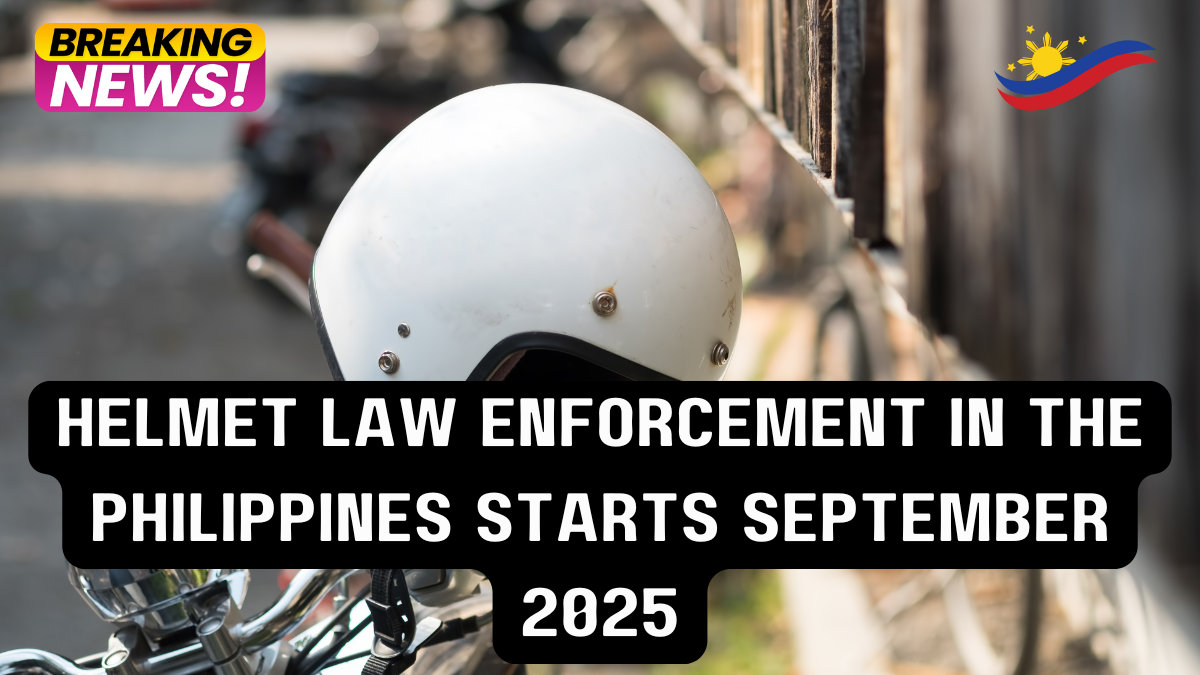The Philippines is stepping up its game on road safety with the full-scale implementation of the PH Motorcycle Helmet Law Enforcement 2025. This renewed focus means authorities are no longer just urging helmet use—they’re now actively cracking down on violations with strict penalties. Whether you’re a daily rider or a weekend cruiser, it’s essential to stay updated on what this law means for you, your safety, and your wallet.

Table of Contents
Helmet Checks and Safety Compliance: What’s Changing?
One of the most notable changes is the increase in safety checks. Riders can expect random roadside inspections conducted by the Philippine National Police-Highway Patrol Group (PNP-HPG) and local traffic enforcers. These checks are designed to ensure every motorcycle rider wears a Department of Trade and Industry (DTI)-certified helmet with the correct ICC sticker.
Officials will also verify that helmets are in good condition—no cracked shells, worn straps, or missing padding. If your helmet doesn’t meet these criteria, you could be facing more than just a warning. The government aims to reduce head injury fatalities, which still account for a significant number of motorcycle-related deaths in the country.
Non-Compliance Fines: How Much Will It Cost You?
The compliance fine for not following the PH Motorcycle Helmet Law Enforcement 2025 has been increased to reflect the seriousness of the violation. Repeat offenders will no longer get away with a slap on the wrist. Here’s a breakdown of the new penalty structure:
Violation |
Fine (PHP) |
Additional Penalty |
|---|---|---|
No helmet |
3,000 |
Possible license suspension |
Substandard or non-certified helmet |
2,000 |
Helmet confiscation |
Tampered ICC sticker |
5,000 |
Legal charges for forgery may apply |
Repeat violation (within 6 months) |
10,000 |
License suspension + traffic seminar |
These updated fines aim to discourage non-compliance while reinforcing the importance of proper protective gear.
Why This Law Matters More Than Ever
The Philippines has one of the highest rates of motorcycle usage in Southeast Asia. Yet many riders continue to underestimate the importance of wearing a standard, well-fitted helmet. With over 1.2 million motorcycles registered nationwide, road safety has become a critical public issue.
Data from the Department of Health shows that over 40% of motorcycle-related fatalities involved riders not wearing certified helmets. The PH Motorcycle Helmet Law Enforcement 2025 is a response to these alarming statistics. By targeting helmet safety, the government hopes to cut motorcycle-related deaths by at least 30% over the next three years.
What Riders Should Expect from September 2025
Enforcement begins September 1, 2025. Expect increased patrol visibility, especially along highways, major intersections, and near schools. Local government units (LGUs) will also play a significant role by issuing localized guidelines, organizing helmet awareness campaigns, and training traffic enforcers on the proper conduct of safety checks.
Retailers are also under scrutiny. Selling uncertified helmets can lead to business closure and criminal liability. Riders are advised to buy helmets only from authorized dealers and double-check the ICC sticker for authenticity.
Final Thoughts: Gear Up or Pay the Price
The new wave of enforcement under the PH Motorcycle Helmet Law Enforcement 2025 isn’t just about following rules—it’s about saving lives. Riders must understand that investing in a certified helmet isn’t just a legal requirement—it’s a personal responsibility. With stricter safety checks, higher compliance fines, and zero tolerance for violations, the time to act is now.
FAQs
What is the ICC sticker and why is it important?
The ICC (Import Commodity Clearance) sticker certifies that a helmet meets Philippine safety standards set by the DTI. Helmets without this sticker are considered unsafe and illegal to use.
Are there exceptions to the helmet law?
Yes, tricycle drivers operating within barangay limits may be exempted, depending on local ordinances. However, this exemption doesn’t apply to highways or major roads.
Can a helmet be confiscated during a safety check?
Absolutely. If a helmet is found to be substandard, fake, or lacks an ICC sticker, traffic enforcers have the authority to seize it on the spot.
How can I verify my helmet’s certification?
You can check the ICC sticker via the DTI’s official website or contact their hotline. It’s recommended to buy only from accredited shops to avoid counterfeit products.
What if I’m caught with a fake ICC sticker?
You may be fined up to PHP 5,000 and face legal action under forgery and fraud laws. Your license may also be suspended depending on the case.
Click here to learn more




